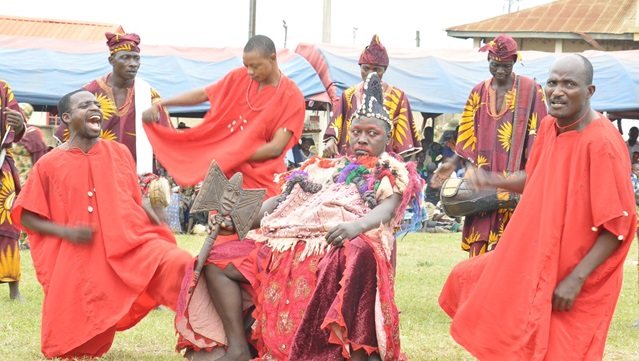The Oyo State Government has inaugurated a 10-member committee for the 2024 World Sango Festival, to hold in August.
The News Agency of Nigeria (NAN) reports that the Sango Festival was enlisted by the United Nations Educational, Scientific and Cultural Organization (UNESCO) in the list of World Heritage Maps in 2023.

The Sango Festival of Oyo marks the beginning of the Yoruba Traditional New Year in August.
It is an ancestral worship that takes place in Sango, Nigeria, near the ancient Koso Temple.
The ten-day festival is strongly connected to the social, religious, cultural and political institutions of the Oyo State.
Speaking during the inauguration, the Commissioner for Culture and Tourism, Dr Wasiu Olatubosun, tasked charged members to live up to expectations.
Olatunbosun urged the committee to work toward securing sponsorship for the festival and equally promoting the festival locally and within UNESCO member countries.
ALSO READ: Oyo workers seek speedy conclusion of new minimum wage process
The commissioner acknowledged the contributions of the representatives of UNESCO and the International Cultural Relations Department, Federal Ministry of Arts and Culture, Dr Paula Gomez and Mr Emmanuel Odekanyin respectively, toward UNESCO approval for the World Sango Festival.
He also emphasised the importance of attracting international audience by ensuring the festival meets international standards.
The committee is headed by the General Manager of the Cultural Centre, Ibadan, Mrs Olayinka Adedeji, co-chaired by Gomez while members of the committee comprise officials of the Ministry of Culture and Tourism, among others.
NAN reports that no fewer than 15,000 local and international tourists will witness this year’s Sango Festival in Oyo town.
NAN reports that when the festival commences on Yoruba New Year’s Eve in August, Sango devotees and followers share and eat roasted new yam and palm oil.
People of all genders plait their hair and dress in red, wearing white and red beads around their necks and wrists.
The festival encompasses different rites and involves chanting, storytelling, drumming and dancing. Children acquire the related knowledge and skills by observing and imitating elders and attending Saturday worship at the Sango Temples.
Sango magical crafts and rites, however, are transmitted through apprenticeships.
The festival unites the Oyo community, which views the practice as an expression of shared identity and social cohesion and as a means of reconnecting with their ancestor, Sango. (NAN)







